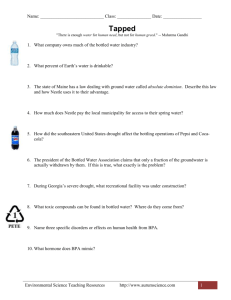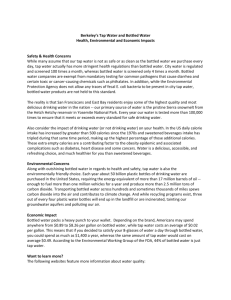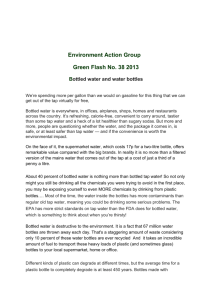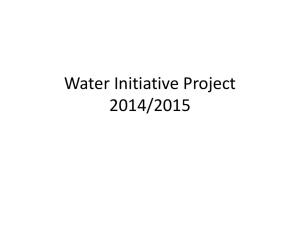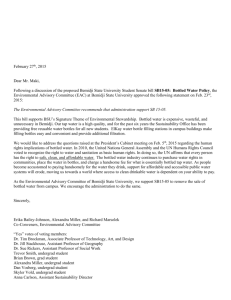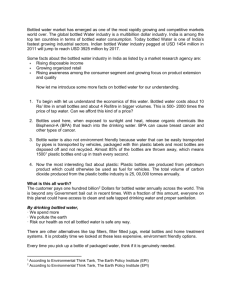Grace - Teens Turning Green
advertisement
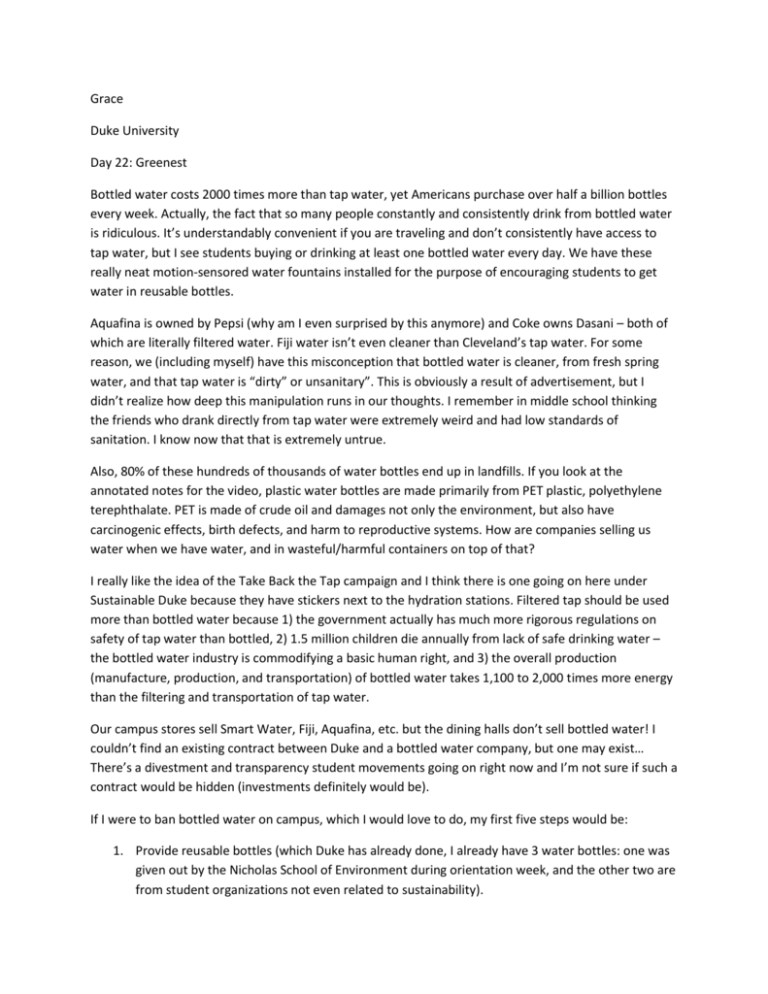
Grace Duke University Day 22: Greenest Bottled water costs 2000 times more than tap water, yet Americans purchase over half a billion bottles every week. Actually, the fact that so many people constantly and consistently drink from bottled water is ridiculous. It’s understandably convenient if you are traveling and don’t consistently have access to tap water, but I see students buying or drinking at least one bottled water every day. We have these really neat motion-sensored water fountains installed for the purpose of encouraging students to get water in reusable bottles. Aquafina is owned by Pepsi (why am I even surprised by this anymore) and Coke owns Dasani – both of which are literally filtered water. Fiji water isn’t even cleaner than Cleveland’s tap water. For some reason, we (including myself) have this misconception that bottled water is cleaner, from fresh spring water, and that tap water is “dirty” or unsanitary”. This is obviously a result of advertisement, but I didn’t realize how deep this manipulation runs in our thoughts. I remember in middle school thinking the friends who drank directly from tap water were extremely weird and had low standards of sanitation. I know now that that is extremely untrue. Also, 80% of these hundreds of thousands of water bottles end up in landfills. If you look at the annotated notes for the video, plastic water bottles are made primarily from PET plastic, polyethylene terephthalate. PET is made of crude oil and damages not only the environment, but also have carcinogenic effects, birth defects, and harm to reproductive systems. How are companies selling us water when we have water, and in wasteful/harmful containers on top of that? I really like the idea of the Take Back the Tap campaign and I think there is one going on here under Sustainable Duke because they have stickers next to the hydration stations. Filtered tap should be used more than bottled water because 1) the government actually has much more rigorous regulations on safety of tap water than bottled, 2) 1.5 million children die annually from lack of safe drinking water – the bottled water industry is commodifying a basic human right, and 3) the overall production (manufacture, production, and transportation) of bottled water takes 1,100 to 2,000 times more energy than the filtering and transportation of tap water. Our campus stores sell Smart Water, Fiji, Aquafina, etc. but the dining halls don’t sell bottled water! I couldn’t find an existing contract between Duke and a bottled water company, but one may exist… There’s a divestment and transparency student movements going on right now and I’m not sure if such a contract would be hidden (investments definitely would be). If I were to ban bottled water on campus, which I would love to do, my first five steps would be: 1. Provide reusable bottles (which Duke has already done, I already have 3 water bottles: one was given out by the Nicholas School of Environment during orientation week, and the other two are from student organizations not even related to sustainability). 2. Put up flyers up around campus (and in bathrooms!) on the benefits of tap water (the negative environmental and health effects of bottled water, the cleanliness and higher standard of regulations for tap water, etc.). 3. Have a documentary showing of Tapped – which discusses the effect of bottled water on personal health and pollution to the environment (and free food to entice students). 4. Host a panel discussion of experts and professors (environmental policy, economics, environmental science) to provide a better understanding of the subject. 5. Set up booths at both student unions to discuss bottled water and the benefits of switching to tap water. 6. Create a website with resources such as links to videos like the Story of Bottled Water, as well as infographics, statistics and facts on bottled water v. tap water. I think challenges would be just shifting the mindset from one where bottled water seems pure and clean, and show that the “convenience” does not outweigh the costs. Also, it needs to be demonstrated that our new water fountain systems are just as convenient, not to mention much cleaner and cheaper and better for the environment, than purchasing bottled water. Sustainable Duke is working on this as part of a broader movement towards better sustainability. Environmental Alliance is also working for more water hydration systems as the ones discussed! (Note the Take Back the Tap sticker by Sustainable Duke! They’re motion sensored hydration systems, located in the newer buildings as well a few recently renovated dorms.)
